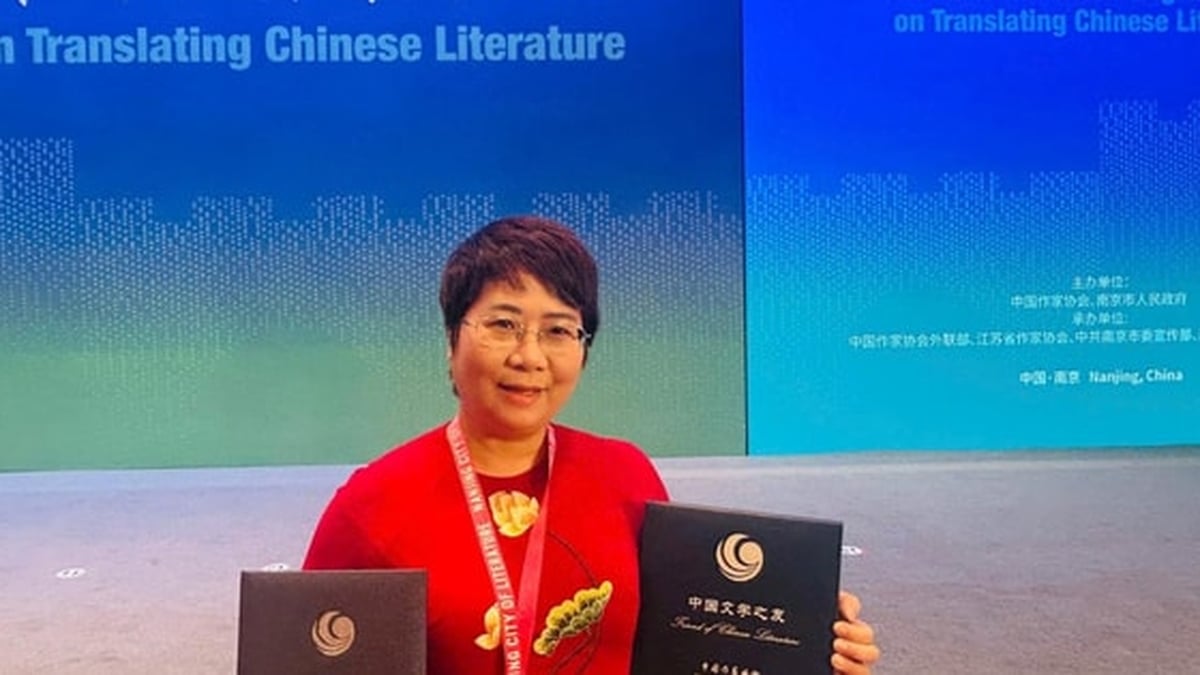Workers who retire at the right age will be at a disadvantage.
In April this year, Mr. Nguyen Van Sam reached retirement age after more than 40 years of working in the health sector. With more than 40 years of participating in social insurance, when he retires, Mr. Sam will receive the maximum pension (75%), in addition, with the remaining 5 years of social insurance payment, each year Mr. Sam will receive 0.5 month salary.
Mr. Sam said that the fact that the Social Insurance pays only 0.5 month's salary for each year of excess social insurance payment is unfair to him compared to people who withdraw social insurance at once.
“People who withdraw social insurance once and pay social insurance each year receive 2 months of salary. So why do I only receive 0.5 months of salary each year after contributing until retirement?”, Mr. Sam compared.

Also wondering like Mr. Sam, reader Thu Minh shared: "I am 54 years old this year, have participated in social insurance for 35 years, however, due to my declining health, if I want to retire, I have to wait 8 more years.
In case of early retirement, 2% will be deducted each year, so 16% will be deducted, leaving only 61% of salary.
Meanwhile, if I continue to work until retirement age, I will only have 75% of my salary. So when I reach retirement age, after 8 years of excess social insurance contributions, why not increase it by 2% each year to receive a higher salary instead of only paying 0.5 month of excess salary each year?
Should be flexible for workers to choose
Reader Pham Hong Son said that workers who have paid social insurance for 35 years or more should have the right to choose from the following options: One, if they retire immediately, they will not have their percentage deducted due to their age. Two, they can continue working but not have to pay social insurance. Three, they can choose to continue working and pay social insurance to receive a higher pension. Only then will the social insurance policy be fair and attractive to workers.
Reader Dang Tri Dung said that if the employee has paid enough years to receive 75% of the pension but has not reached retirement age, he or she has the right to close the book and stop paying premiums until retirement age. In the remaining years, the employee has the right to receive all the premiums that the employer pays for social insurance, added to the salary to increase personal income.
“There should be a regulation allowing workers to use the excess years of contributions to make up for the time they are under age so that they can retire early if they wish, because we have already taken the maximum contribution period as 35 years as the basis,” another reader shared.
Should we pay 2 months salary for each year of excess social insurance payment?
Speaking with VietNamNet, Mr. Pham Minh Huan, former Deputy Minister of Labor, Invalids and Social Affairs, said that in the Draft Law on Social Insurance Amendment, the drafting committee is proposing to increase the benefit level to 1 month's salary for those who pay excess social insurance to receive the maximum pension instead of 0.5 month as currently regulated.
However, Mr. Huan said that the drafting agency needs to consider and calculate carefully to increase the payment level for each year of excess social insurance contributions to the maximum salary level to 1.5 or 2 months' salary, ensuring fairness for workers.
An official from Hanoi Social Insurance said that for cases where employees pay too much social insurance to receive the maximum pension, the unit is proposing to pay the same amount as employees withdrawing social insurance in one lump sum, meaning that each year of overpayment must be 2 months of salary. Only then can we encourage eligible employees to continue to pay social insurance.
Regarding the proposal to compensate for the number of years of excess social insurance contributions to be able to retire early, Mr. Huan said that this is very difficult, because the pension model in our country is in a state where the contribution level "runs" after the benefit level.
“The total amount of social insurance contributions of employees remains unchanged. If they pay enough to retire early and live long, where will the money come from to make up for it? No country in the world allows exchanging years of social insurance contributions to receive an early pension,” said Mr. Huan.
Source



























![[Photo] National Assembly Chairman Tran Thanh Man visits Vietnamese Heroic Mother Ta Thi Tran](https://vphoto.vietnam.vn/thumb/1200x675/vietnam/resource/IMAGE/2025/7/20/765c0bd057dd44ad83ab89fe0255b783)











































































Comment (0)